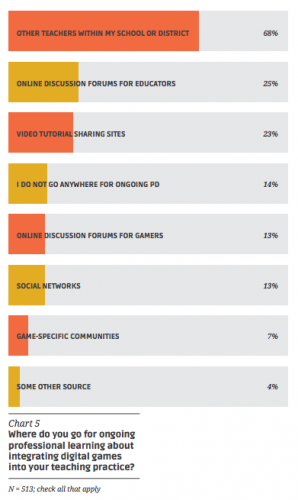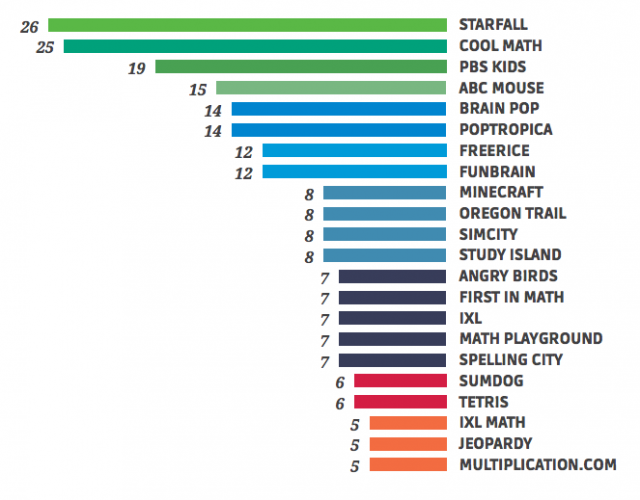While more teachers are using digital games in the classroom, how they decide which games to use and why is less standardized, according to a teacher survey of 694 K-8 teachers by the Games and Learning Publishing Council called Level Up Learning: A National Survey on Teaching with Digital Games.
The report finds that teachers learn about games through informal means, such as peers within the school or school district, and could benefit from more explicit training programs. By not having a more formal process, the report finds that “teachers may not be getting exposure to the broader range of pedagogical strategies, resources, and types of games that can enhance and facilitate digital game integration.”
“There’s a problem with discovery. They aren’t aware of all the types of games they could be using and all the ways they could be using them,” said Lori Takeuchi, senior director and research scientist at the Joan Ganz Cooney Center who co-authored the report. The GLPC is a project of the Cooney Center. “We need an easier way for teachers to find the best game titles that will meet their needs,” she said.

The report says a minority of teachers are using resources available to them. Teachers already using digital games get most of their professional learning from other teachers within the school or district (68 percent) and a quarter of surveyed teachers go to online forums for educators. For those reasons, the report authors recommend finding alternative ways to reach out to teachers. The report states, "This means that we need to do more to promote these online resources and identify how they can more effectively address teachers' pedagogical questions as well as their lifestyles, learning styles, and organizational constraints."
Overall, most teachers they surveyed use games in the classroom. Many times, a teacher's exposure to gaming outside of school impacts whether students get the benefit of games in the classroom. Of the teachers surveyed, 74 percent use digital games to teach in the classroom. Most of those said they let their students play at least monthly. About 40 percent of teachers who use digital games are using them to meet curriculum standards.



